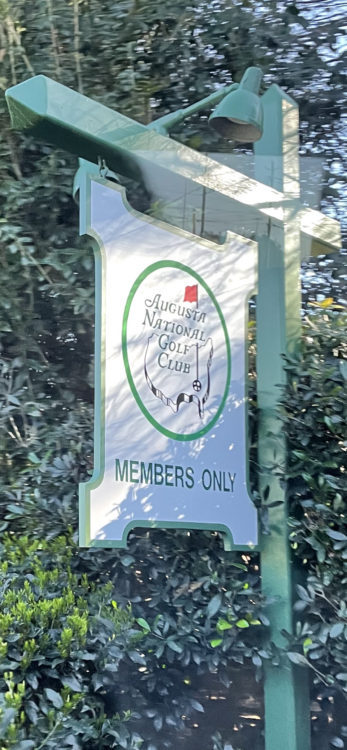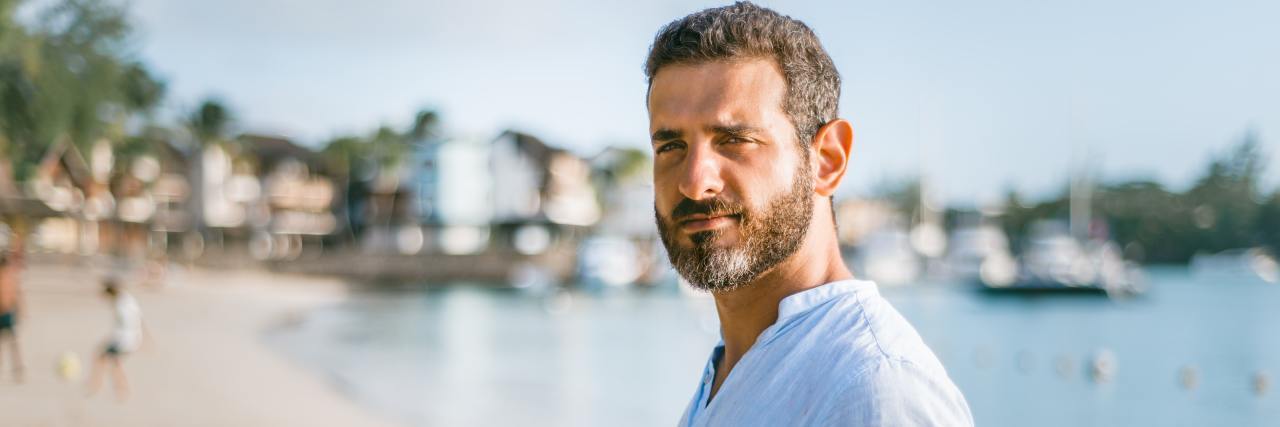What is the single greatest memory of your life? Now, before you answer that question I want to give you a couple of caveats. You cannot answer with:
1. The day(s) you got married.
2. The day any of your children were born.
Those answers are too easy. Let’s dig into this a little deeper and maybe we can learn something together.
Life’s greatest moments leave us with nothing but a memory — or if you are an American, they also leave you with something plastic from a gift shop. And, it’s human nature we have an affinity for some memories over others.
So, what is the single greatest memory of your life?
Your first day of school?
Your first kiss?
A gift you received on Christmas morning?
The day you got engaged?
“Fifty People, One Question” is a simple project: The crew goes to a city, asks 50 people the same question and films their responses. The results are funny, moving and sometimes tear-inducing.
The crew recently visited Chicago, Illinois, asking the question: “What’s your favorite memory?” Click here to watch.
Memories are extremely personal since no two people experience things in the same way. We interpret experiences differently. And, everyone’s recollection of events are different. For example, how many times have you revisited a memory or an experience with a friend only to find they don’t even remember that thing happening? Or they don’t recall the experience in the same way?
In his popular TED Talk, Daniel Kahneman, Nobel Prize winner and behavioral economics founder, starts to peel back the layers of this seemingly simple question. Kahneman opines there are “two selves.” That is, there is an “experiencing” self and a “remembering” self. The experiencing self is wired for the present moment. It’s the live version of events. The remembering self is wired for looking back on an experience. It’s the mental, video replay of your life’s events. These two selves are rarely in agreement. And they perceive happiness very differently.
I’m interested in this topic because I’ve spent an inordinate amount of time on my bucket list in the past few years. While COVID-19 slowed down my pursuit, I’ve done a decent job of checking off the boxes. Just last week, I was able to check the box on my number one bucket list item: a round of golf at Augusta National Golf Club. Not only did I get to play, but I got to enjoy the round with a lifelong best friend, Luther Lockwood. It was an experience I will never forget and it did not disappoint.

“Some memories never leave your bones. Like salt in the sea; they become a part of you and you carry them.” -Unknown
While I was enjoying this epic, bucket list experience, I was fully aware I was creating a memory that would be permanently etched in my bones forever. I made sure to slow down, to look around and to be mindful and present for the four hours on such hallowed, historic ground.
I stood on the 12th tee box and recalled in 2016 Jordan Speith rinsed several balls in Ray’s Creek and lost the Masters with a quadruple bogey. Click here to watch.
I stood in the middle of the legendary 15th fairway and recalled how Sergio Garcia rinsed five golf balls, to card a 13. Click here to watch.
I walked the famous 16th green recalling how Tiger Woods chipped in to win the Masters in 2005. Perhaps the greatest shot in professional golf. Click here to watch.
And, of course, the 18th green where Mr. Man Boobs himself (Phil Mickelson) finally won the Masters in 2004. Click here to watch.
But, this incredible experience caused me to ponder an important question: Which do we prefer: the experience or the memory of the experience? Is one better than the other? The experience might be fleeting, but the memory lasts a lifetime. And, our brain gets to exaggerate the experience with an inherent bias toward happiness or pleasure.
In my research, I found this great quote. After the past few weeks, I thought the good doctor could use some support.
Unfortunately, I couldn’t find any quotes from the person formerly known as Mr. Potatohead or from the disgraced Pepe LePew.
“Sometimes you will never know the value of a moment until it becomes a memory.” -Dr. Seuss
I think the good doctor nailed it. We’ve all had hundreds of experiences that seemed meaningless at the time. But, years later, we can recall them with incredible specificity. Like the time I saw “Raising Arizona” in the movie theater. I thought it was silly. Thirty years later I’m still quoting H.I. McDonough like it’s my job.
We all have an affinity for one over the other, either the experiences or the memories. In his TED Talk, Daniel Kahneman makes a compelling argument. He asks, “If you could take a free vacation anywhere in the world, where would you go?”
Then, Kahneman adds a caveat.
“What if I told you that at the end of the trip each guest would receive a dose of an amnesiac? You’d still be tanned and rested, but you’d have no idea where you went or what you did. Would you still choose the same vacation?”
Your answer says a lot about which you prefer, experiences or memories.
“The best memories come from bad ideas done with friends.” -Unknown
I think I’m a memory guy. It stems from a bit of advice I received from my close friend, Rob Schanen, back in 2007. He told me his mission is to fill his life with experiences and memories, not fancy things to impress people. In his mind, those family experiences would someday be way more priceless than the stuff he could acquire. I was touched by that advice. I decided “creating memories” would be my mission as well. Those memories are small, daily deposits into my happiness bucket.
In full disclosure, over the last year of house arrest, I’ve made frequent withdrawals from that bucket. Those withdrawals filled a void in the otherwise malaise of rabid political discourse and gloomy virus predictions.
One of the only things I’ve enjoyed about BookFace, I mean Facebook, is the daily “Your Memories” on Facebook. Like this photo from Jamaica that popped up today from six years ago. These kids are all in college now.
Similarly, Amanda Boyarshinov once wrote:
“The best gifts in the world are not in the material objects one can buy from the store, but in the memories we make with the people we love.”
But a mission to “create memories” can add a great deal of pressure to life. How can I be certain, with limited time, I’m creating the right memories?
I decided to work backward. To envision what it might look like to experience 10, memorable family vacations. Then, we started traveling. We are in the process of booking trip number 10. I replay the mental video reels from our trips nearly every day. I wouldn’t take $5,000,000 in Bitcoin for those experiences or the memories.
One of the interesting things I’ve learned is you cannot always pick what you will value or recall. Sometimes the best memories are those things that are totally unplanned. Like getting caught in a torrential rain and hailstorm deep in a Costa Rican rainforest to photograph sloths. Turns out, it rains a lot in a rainforest. Who knew? But the memory of a two-hour hike in a massive rainstorm is priceless.
“The most beautiful things in life are not things. They’re people and places and memories and pictures. They’re feelings and moments and smiles and laughter.” -Unknown
One of the traps of relying on our memories for happiness stems from the fight or flight mechanism. We are hardwired to recall negative experiences over positive experiences. In our caveman days, it was essential for survival.
So, an incredible vacation can be colored by your return flight being cancelled. Or, a great movie can be spoiled by a weak ending. Our minds are fickle mistresses.
It’s odd, but people are incredibly hesitant to name their favorite memories. As if the pressure is just too much. Or someone might judge their favorite memory to be too trivial. But, here’s the great news. Your favorite memory is fungible. You can have a favorite memory today that could be immediately be replaced by the recollection of better memory tomorrow.
The definition of happiness claimed by the dictionary is “feelings of joy and pleasure mingled together.” And, isn’t that the point? Memories are not measurable, profitable, nor tradable. They are of no value to anyone but the holder. But they can bring the holder tremendous joy and pleasure. I can’t imagine anything more effective at changing your mindset and eliciting feelings of happiness than focusing on your favorite life experiences.
See, thanks to the magic of cognitive association, we can trick our minds into recalling these memories. It’s as simple as putting small reminders in your path. I assure you a plastic ball marker from Augusta National will forever elicit feelings of joy and happiness for me. It literally flips the switch on neural pathways.
There are many claims that happiness can be achieved through money, yet many challenge that theory. Count me in that camp. I’d rather have a plethora of plastic golf ball markers that cost less than a penny each.
So, as you come out of your COVID-19 house arrest, take some time to think about what you’ll do when the face mask is finally removed. Will you go back to seeking material objects that offer temporal happiness? Or will you seek to create experiences with people you love, that etch indelible memories on your soul?
So, what about you? What is the single greatest memory of your life?
Unsplash lead photo by Rana Sawalha

